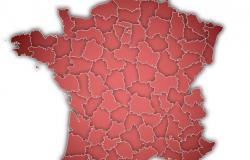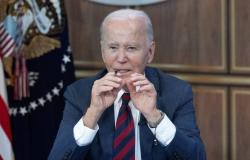Quebecers should “shake this idea that everything is going wrong” when it comes to the Francophonie in Montreal, believes the president of the city’s French language committee, Louise Harel. On the contrary, she believes that the trend is completely “reversible” in the metropolis over the coming years.
Published at 1:00 p.m.
“We have to shake off this idea that everything is bad. This is the feeling that is the most widespread, but at the same time, I don’t see where this kind of resignation would lead us in the face of a kind of obligation to give up,” argued the former PQ minister in the fray. press release on Wednesday, however mentioning “a change of direction, an important shift” to be made.
She presented the final report of her committee, which recommends, among other things, that the City of Montreal set up an office of the French language and the Francophonie, to “prioritize the holding of activities and cultural events in French in the municipal institutions and the public space” or to “strengthen the representation of the City” in major French-speaking events.
For Mme Harel, “the situation can be reversed in a certain way if there is a strong, common and permanent will”. “What interests young people in Montreal is openness to the world. But this openness to the world is possible within the framework of the Francophonie,” she maintained.
Alongside him, Mayor Valérie Plante argued that “we need to change perceptions” about the state of French in Montreal. “We may have a tendency to look at things that are not going well, and it is important to name them, but seriously, there is a firm desire here to set an example,” she reasoned.
“You have to take charge. […] We want to help ensure that French continues to be this language of social cohesion, the language of the heart. And this is the case in Montreal. Sometimes, it would be worth going to lots of francization centers, in lots of neighborhoods, where we see that French brings hope, prosperity,” continued the municipal representative.
More funding
In the committee’s report, the Plante administration is also suggested to “develop three-year framework agreements” for funding with the Ministry of the French Language to promote French in the long term. This would break the logic of “project financing”, says M.me Harel.
“What I hope will change is that the amount will be greater than the 1.5 million projects in 2023, and that Quebec will understand the importance of supporting the projects that will be carried out in the territory Montrealers,” she adds.
The City is also called upon to “support the business community in its efforts to promote the French language by emphasizing its economic added value”.
Finally, the committee suggests “constantly stimulating the interest of newly arrived people and foreign students in Quebec culture and the French language” through community activities and gatherings.
For the rest, Valérie Plante calls on the Office québécois de la langue française (OQLF) to “enforce the law”. Last June, Quebec tabled its regulation combating the erosion of French in terms of commercial signage, which will impose new requirements from June 2025.
By June 2025, all businesses must display at least twice as much French as any other language, in terms of surface area. The minister responsible for the French language, Jean-François Roberge, also promised that surveillance will be increased in the coming years. The City’s French language commissioner, Noémie Dansereau-Lavoie, affirms that discussions are underway with the SDCs so that merchants respect the new legislation when it comes into force.
According to Statistics Canada 2021 census data, the proportion of people who use French as their first official language spoken, an indicator that measures the place of French in the public space, had decreased since 2016, from 83 .7% to 82.2%.
A more recent study by the OQLF concluded instead that the use of French is stable: 79% of Quebecers used French most often in 2022, the year the survey was carried out. That said, in 2021, two OQLF studies documented a significant decline in French as the spoken language in Quebec. According to one of them, one in two Quebecers used English or a language other than French at work.






